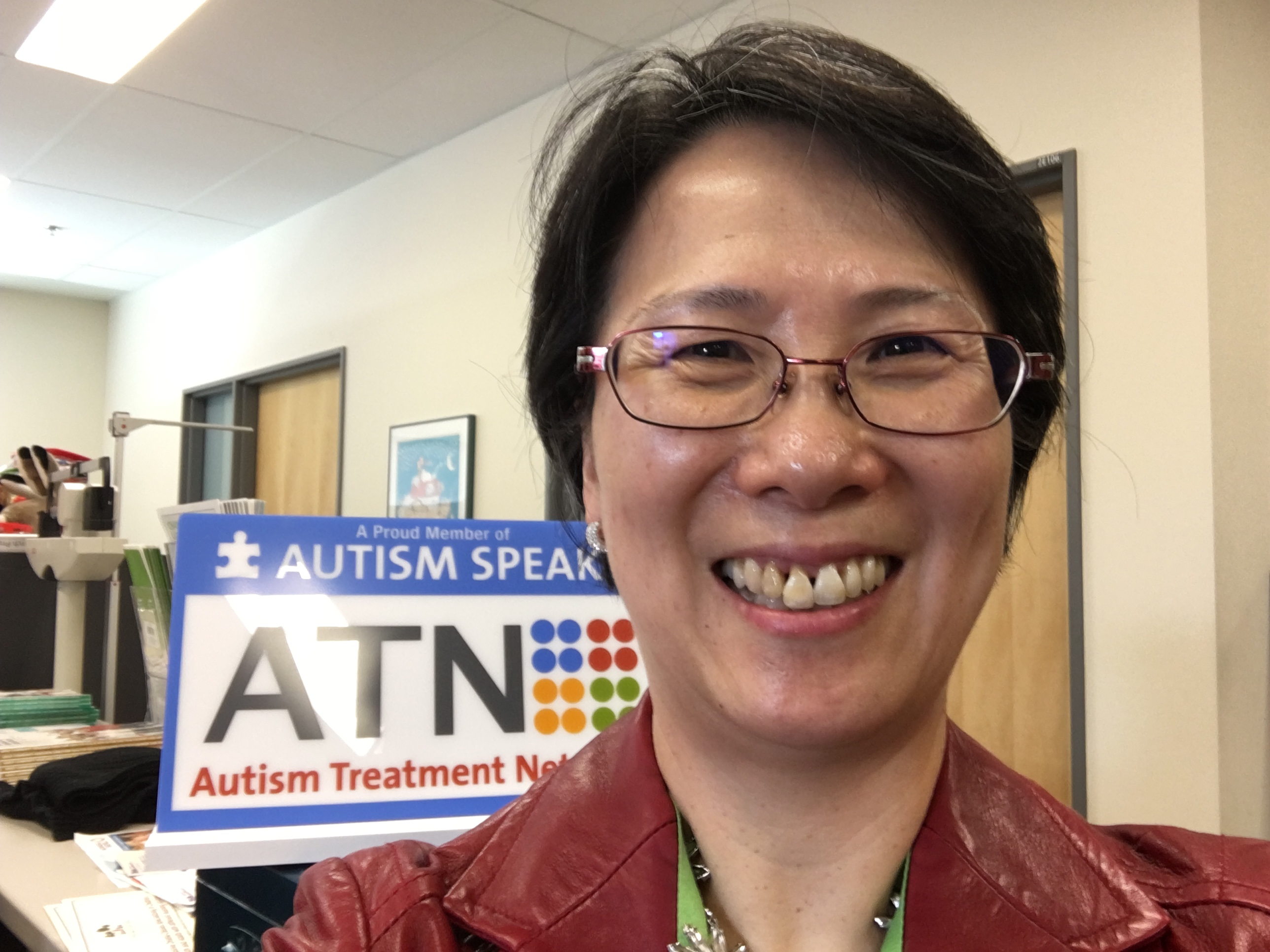Theme: Understanding Autistic Mind and Accelerating the Recovery
Autism 2023
Track 01: Autism: Causes, Risk Factors and Diagnosis
The issue of mental imbalance range disorders (ASD) is a complex neurobiological problem characterized by neuropsychological and behavioral abnormalities. The most prominent symptoms are impaired social interaction, communication difficulties, and repetitive behaviors, which become apparent after a certain age. ASD is one of the fastest-growing disabilities worldwide. The hereditary and physiological makeup of the brain is studied to determine the pathology of autism, but early diagnosis of ASD is challenging due to the current phenotypic and etiological diversity among individuals with ASD. Volumetric and neuroimaging studies are conducted to explain the neuroanatomy of the ASD brain. Neuroanatomical, neurochemical, and neuroimaging biomarkers can assist in the treatment of autism, and the demand for such treatments is expected to grow from 2022 to 2028, according to Information Bridge Market Research. The demand for ASD treatment is projected to reach a value of $585.81 billion and grow at a CAGR of 4.20% during the forecast period. The increasing prevalence of ASD and growing awareness about this condition are driving the demand for ASD treatment.
Track 02: Autism Spectrum Disorders and Research
Written to assist non-specialists in providing state-of-the-art care for individuals with autism spectrum disorders, this volume presents the latest research on the etiology, assessment, and treatment of autism spectrum disorders for healthcare professionals. It also reviews the scientific literature and practical implications for clinical care and, in this era of evidence-based medicine, provides well-supported guidelines for evaluation and treatment, highlighting the role of various professional disciplines. Contributors include experts and practitioners from diverse fields such as pediatrics, psychology, psychiatry, neuroscience, genetics, education, and child development. Their work offers a comprehensive perspective, followed by a model of teamwork and cross-disciplinary collaboration practiced at the Medical Investigation of Neurodevelopmental Disorders (M.I.N.D.) Institute at the University of California, Davis. The treatments offered are innovative solutions for healthcare professionals, parents, and families, emphasizing the importance of collaboration across various domains, from non-medical interventions to pharmacotherapy and from alternative perspectives to social issues and parental stress, using the M.I.N.D. Institute as a model.
Track 03: Autism Awareness and Child Safety
For parents of typically developing children, similar safety precautions are generally necessary for the first few years of life, after which the child grows and no longer requires the same level of supervision. However, for parents of children on the autism spectrum, the situation can be different. There are many additional considerations to keep in mind when ensuring the safety of the individual with autism, their siblings, and the home environment, throughout the lifespan of the individual with ASD. Think about the numerous behaviors that a person with autism might engage in that could be dangerous, such as throwing objects, breaking plates and glasses, knocking items off shelves, emptying cupboards and drawers, and climbing out of or breaking windows. Alternatively, consider what can happen when curiosity and domestic exploration combine, such as putting objects in appliances, flushing items down the toilet, reaching for burners, turning on hot water faucets, sticking objects into electrical outlets, chewing on cords, or crawling into a washing machine or dryer. Finally, consider the potential risks that can arise from playing with matches, lighters, or fire.
Track 04: Pediatrics, Neonatology and Healthcare
Track 05: Mental Health and Well-being
- Genetic factors, such as inherited traits or brain chemistry
- Major life events, such as trauma or abuse
- Family history of mental health issues
Track 06: Stress, Depression, Anxiety and Mindfulness
We examined aspects of mindfulness-based interventions (describing, non-judging, non-reactivity, and awareness), three components of emotion regulation- empathy (emotion judgment, emotion differentiation, and emotion regulation), emotion regulation effectiveness, and dispositional mindfulness as predictors of depression, anxiety, stress, and substance use among 204 students in the USA. Mindful describing and non-judging, along with dispositional mindfulness and emotion regulation effectiveness, predicted substance use. After controlling for emotion regulation effectiveness, emotion regulation components and dispositional mindfulness, aspects of mindfulness-based interventions contributed to a significant improvement in predicting depression, anxiety, stress, and substance use. We confirmed the importance of mindful non-judging in predicting depression (negatively) and substance use and identified the specific contributions of mindful describing for depression (again) and substance use. We outlined the value of mindful non-reactivity (again) for stress and anxiety. Additionally, we confirmed the importance of emotion judgment and differentiation for depression and of emotion regulation for stress. Lastly, we outlined dispositional mindfulness and emotion regulation effectiveness as predictors of substance use. The present findings highlight the importance of examining mindfulness-based interventions, emotion regulation components, emotion regulation effectiveness, and dispositional mindfulness together in predicting depression, anxiety, stress, and substance use.
Track 07: Child Psychology and Developmental Disabilities
There has been an increasing recognition of the importance of asking more positive questions about the experiences and challenges of families of children with disabilities. However, this recognition has not yet had a noticeable impact on research trends. Our aim in this paper is to review existing published research on the positive experiences and challenges of families and propose a resilience model for future investigation of families' positive experiences. This model is based on the proposition that positive experiences serve as resources that help families adapt to or cope with the challenges of raising a child with disabilities. Throughout the discussion, we identify several questions for future research and address several implications for practice.
Track 08: Child Nutrition and Parenting
Aside from food, hygiene, and access to good healthcare services, children need adequate care at home for their well-being and optimal development. Responsiveness, which refers to a caregiver's sensitive and appropriate interaction with the child, is an essential parenting tool with far-reaching benefits for the child, from improved cognitive and psychosocial development to protection from illness and mortality. We examined two aspects of responsive parenting - its role in child health and development, and the effectiveness of interventions to enhance it - by conducting a systematic review of literature from both developed and developing countries. Our findings revealed that interventions are effective in improving maternal responsiveness, resulting in better child health and development, particularly for disadvantaged populations. Since these interventions were effective even in low-resource settings, they have significant potential in helping us achieve the Millennium Development Goals. We propose that responsiveness interventions be integrated into child survival programs.
Track 09: Child Psychiatry and Behavioural Sciences
The rapid and significant changes in the field were so important that a new and updated edition of the "Comprehensive Textbook of Psychiatry" was deemed necessary. This "Summary" contains a large portion of the highlights from the upcoming edition, providing an introduction for the reader to learn about any topic of interest written by an expert in the field. Additionally, there is a considerable amount of new and original content created by the authors specifically for this "Summary," which has been adapted for use by readers. Therefore, this "Summary" represents a complete and up-to-date revision with new features for the practice of psychiatry in the 1990s. (PsycINFO Database Record(c) 2016 APA, all rights reserved).
Track 10: Asperger’s Syndrome and Social Communication
Individuals with autism spectrum disorder (ASD) who are fluent in verbal communication are not exempt from language and communication difficulties. The purpose of this writing is to assist others in recognizing and understanding the subtle and less visible issues that exist. The presence or severity of the following social communication and language characteristics in high-functioning individuals with autism spectrum disorder may vary by age and by individual. Some of these characteristics are also present in individuals who do not have an autism spectrum disorder, such as in individuals with language or literacy difficulties. With increasing age and increasing communication ability, most of these traits decrease or disappear for individuals who do not have an autism spectrum disorder. It is the persistence and intensity of some of these characteristics from childhood into adulthood that characterizes the condition of autism spectrum disorder.
Track 11: Down syndrome and Genetic Disorders
Down syndrome is a genetic disorder caused by an abnormal cell division that results in an extra full or partial copy of chromosome 21. This extra genetic material leads to the physical features and developmental challenges of Down syndrome. The severity of Down syndrome varies among individuals, causing mild to profound intellectual disabilities and physical limitations. It is the most common chromosomal disorder and a leading cause of intellectual disability in children. It also often results in other medical abnormalities, including heart and gastrointestinal issues.
Track 12: Rett Syndrome and Women’s Health
As adult women with Rett syndrome age, their overall health and cognitive abilities improve, but they continue to lose coordinated movements, according to a study published on 20 November in Clinical Genetics. This is the first long-term study to document the effects of Rett syndrome in adulthood. Rett syndrome, a developmental disorder that primarily affects young girls, is characterized by low social interaction, limited ability to communicate, and severe motor deficits such as floppy arms and legs and repetitive hand movements. Symptoms of the disorder typically appear between 6 and 18 months of age. Because it appears in childhood, most studies of the syndrome have focused on cases in children.
Track 13: Speech-language Pathology and Techniques
Recently, there has been increasing interest in developing research approaches that speech-language pathologists can use, especially for addressing complex questions. Consensus-building methods can be valuable for addressing such questions. The Delphi method is a consensus-building process involving structured communication among individuals from an expert panel via anonymous responses to iterative rounds of surveys. The purpose of this research note is to describe and demonstrate the Delphi method applied to a complex question in speech-language pathology, namely the foundations of social communication and pragmatics. The Delphi method was described and illustrated through a study in which 10 expert speech-language pathologists participated in a 3-round Delphi study.
Track 14: Vaccination and Nursing Care
While a large body of evidence has shown that the administration of the measles-mumps-rubella (MMR) vaccine is not associated with an increased risk of autism spectrum disorder (ASD), a hesitant attitude towards childhood vaccination is still present among the general population. In this study, we aim to examine mothers' views on the causes of their child's ASD to understand how we can address vaccine hesitancy. This study draws on the analysis of 18 semi-structured interviews with mothers of children with ASD on the etiology of autism.
Track 15: Happiness and Quality of Life
Personal satisfaction is considered as a broad concept that covers three components: 1) quality of the living environment, 2) quality of life domains and 3) affective well-being. 'Happiness' is seen as an aspect of the latter component. It is defined as the overall positive affect in one's life. This section explores the relationship of happiness with the first two components of personal satisfaction. A body of empirical happiness research shows that happiness correlates with many aspects of the living environment, particularly with economic prosperity, social connections, and leisure activities. However, not all aspects of the environment considered beneficial appear to be related to happiness, for example, income inequality or job security. Empirical research also shows associations between happiness and life domains, particularly with physical and mental health. Again, there are notable exceptions, for example, happiness seems irrelevant to intelligence. The research illustrates that personal satisfaction is not a singular construct. Rather than one quality, the term indicates composite of characteristics. Therefore, the term should be used as a general descriptor. However, measurement and intervention require further specific concepts.
Track 16: Occupational Therapy and Rehabilitation Counselling
Rehabilitation researchers have found in the application of the Delphi method a more complex approach to acquiring agreement from specialists in the field on specific matters. The use of this research procedure has impacted and surely progressed the group of information on rehabilitation counseling practice. However, the rehabilitation literature has not yet depicted nicely the Delphi method. The provocation behind this composition is to introduce a definition of the Delphi method and to examine many benefits and downsides of exercising this research system. Also, the authors present the consequences of four studies, distinguished in the rehabilitation literature that employed the Delphi method.
- Researchers and academics who specialize in autism and related fields such as psychology, neuroscience, and genetics.
- Healthcare professionals who work with individuals on the autism spectrum, including doctors, nurses, therapists, and counselors.
- Educators who teach students with autism, including special education teachers and support staff.
- Parents and caregivers of individuals with autism, who are looking to learn more about the latest research, treatments, and resources available to them.
- Advocates and activists who work to raise awareness and improve the lives of individuals with autism, including representatives from nonprofit organizations and advocacy groups.
- Individuals on the autism spectrum themselves, who may attend to learn more about their condition and connect with others in the community.
- Policymakers and government officials who are interested in developing policies and programs to better support individuals with autism and their families.
Conference Highlights
- Autism: Causes, Risk Factors and Diagnosis
- Autism Spectrum Disorders and Research
- Autism Awareness and Child Safety
- Pediatrics, Neonatology and Healthcare
- Mental Health and Well-being
- Stress, Depression, Anxiety and Mindfulness
- Child Psychology and Developmental Disabilities
- Child Nutrition and Parenting
- Child Psychiatry and Behavioural Sciences
- Asperger’s Syndrome and Social Communication
- Down syndrome and Genetic Disorders
- Rett Syndrome and Women’s Health
- Speech-language Pathology and Techniques
- Vaccination and Nursing Care
- Happiness and Quality of Life
- Occupational Therapy and Rehabilitation Counselling
To share your views and research, please click here to register for the Conference.
To Collaborate Scientific Professionals around the World
| Conference Date | May 17-18, 2023 | ||
| Sponsors & Exhibitors |
|
||
| Speaker Opportunity Closed | |||
| Poster Opportunity Closed | Click Here to View | ||
Useful Links
Special Issues
All accepted abstracts will be published in respective Our International Journals.
- Journal of Psychology & Psychotherapy
- Autism-Open Access
- International Journal of School and Cognitive Psychology
Abstracts will be provided with Digital Object Identifier by





















